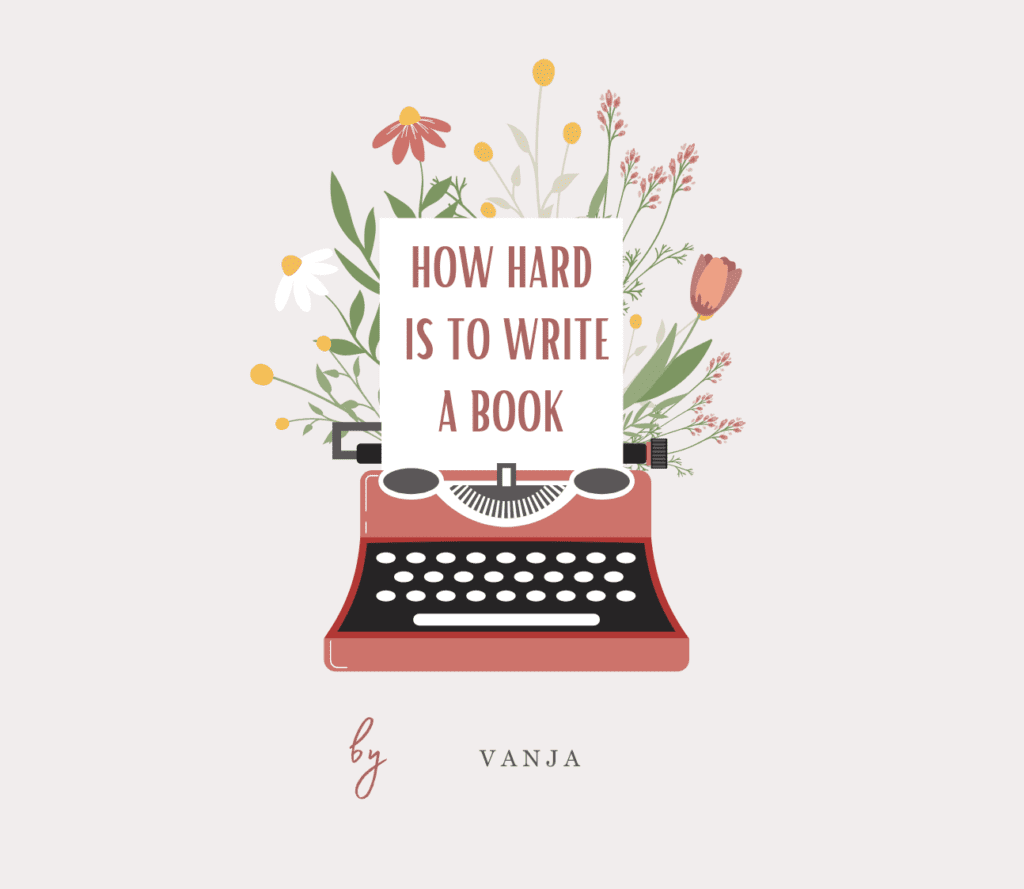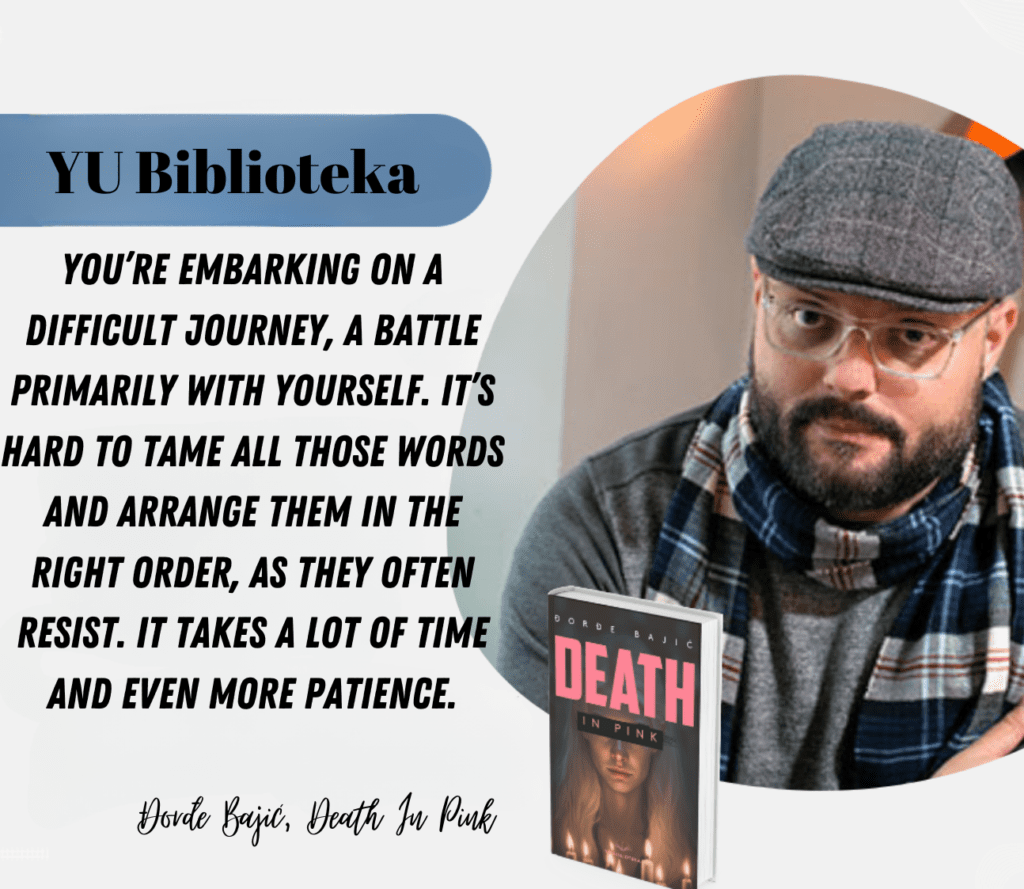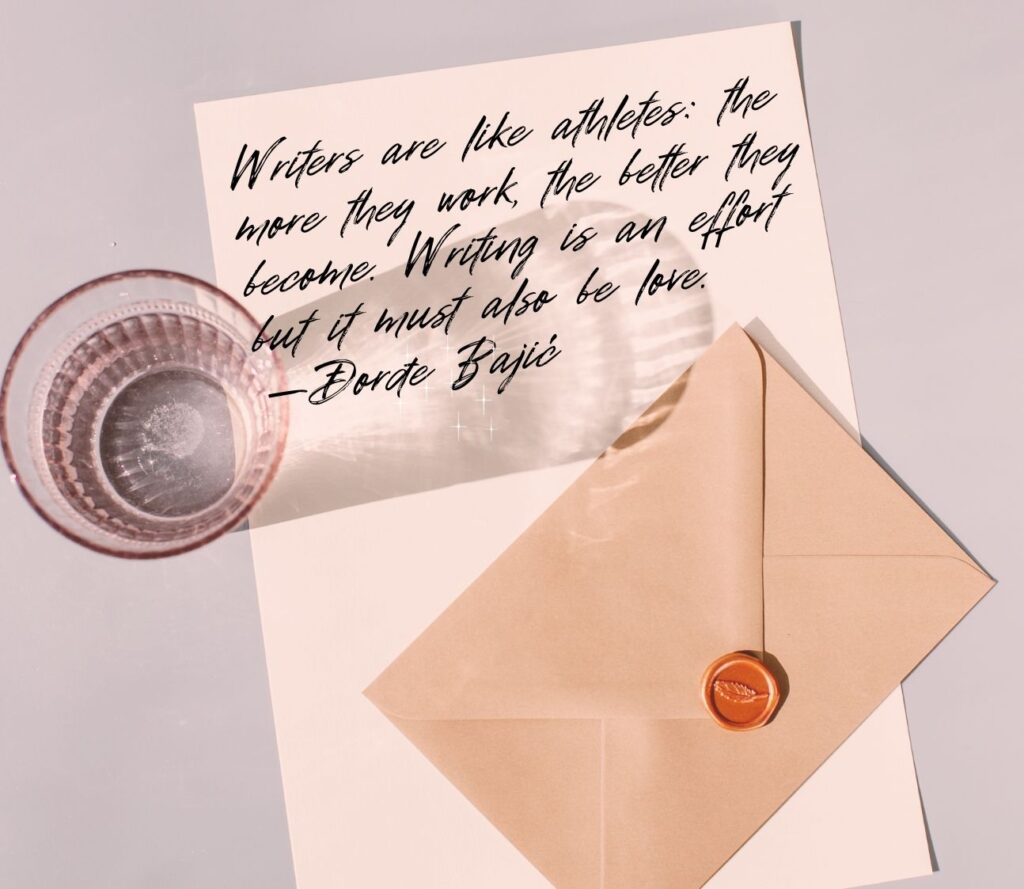How Hard Is It To Write a Book?

I think writing is easier than many other things. For me, anyway, it is much easier than talking. But still, writing is difficult for me. Sometimes it is difficult because I do not know what I want to say, but usually it is difficult because I know exactly what I want to say but what I want to say has not yet taken the shape of language.
—John Green, The Fault in Our Stars
When you search ‘how hard is it to write a book’ online, you’ll find all kinds of texts about it, from detailed explanations on why it is hard to tips and tricks on how to do it in several easy ways. If you’re just starting out and preparing yourself mentally and emotionally to write something (good for you, though), do not look up the process online.
It might discourage you, frighten you, and the last thing this world needs is another discouraged, timid writer. No, we need bold souls with nothing to lose—and a whole life to sacrifice—in order to write their masterpieces that will inspire thousands, if not millions, of people worldwide.
The Schrodinger’s paradox of writing
Before you start writing a book, these are just some of the questions you’ll have to face (before you face yourself in the mirror and tell yourself loud and clear, “I’m doing this; I’m going to write my book).
But not all those online articles about writing are helpful. Most of them are misleading. Writing a book is neither that difficult nor that easy. At the same time, it’s both and none. Writing is Schrodinger’s cat in literature. It’s easy until you start, but it becomes hell when you do, and you can’t go back to the time before you started, so you have to finish, but it’s hard, although it seemed easy.
You’re embarking on a difficult journey, a battle primarily with yourself. It’s hard to tame all those words, arrange them in the right order, as they often resist. It takes a lot of time and even more patience.
—Đorđe Bajić, Death In Pink

Wanting to write is much easier than the actual writing. Take George R. R. Martin, for example, the notoriously famous author of the even more notorious TV show, Game of Thrones. He hasn’t published a sequel to the series A Song of Ice and Fire for over ten years. We’d like to believe that’s not from the lack of wanting, perhaps not even from the lack of ideas.
Stephen King, on the other hand, seems to be the actual king of literary proliferation: he regularly publishes two to three books per year. When asked how he manages to write so quickly, King simply said: one word at a time.
While that’s not the greatest advice ever, at the same time, it is the best one you can receive as a beginner or even a seasoned author. (Take notes, Martin.)
It turns out that writing a book may be a tad easier than writing about writing a book. This blog post took AGES to complete, mostly because its author had no idea where to start, despite the fact that the author had a clear vision of writing a piece about how hard it is to write a book.
So the work kept being postponed and delayed until a more convenient time when the sweet muse of inspiration would strike. Here’s what the author learned about inspiration: you simply cannot wait until inspiration pops up. That bitch is cunning, and sometimes it may last two hours, sometimes for days on end, but more often than not, your muse will abandon you within minutes.
There, I gave you the jist of writing anything: it’s frigging hard.
A word of wisdom from Đorđe Bajić
In my quest to discover how hard it truly is to write a novel and whether just anyone can do it, I’ve turned to the shining star of Serbian literary skies, the Prometheus of Balkan crime novels himself, Đorđe Bajić. You may know him as the author of one cute little crime novel that continues to rock steady two years after its release, Death In Pink.
As Đorđe wonderfully put it, any literate person can sit in front of a computer and type words. In the era of technology, when people are forgetting how to use a pen and write words other than their signatures, that’s kind of a given. But in what particular order do you put those words in? Whether you’re going to finish what you’ve started and how good it’s going to be is an entirely different story.
Speaking of stories, that may be the very first thing you need in order to write a story: the story. You need an idea—a whiff of something juicy that will grow inside you and spread like the plague. Yes, you want that idea to spread like the plague because if you lose sight of why you had that exact idea and what kind of story you want to tell, it’s all over, man.
Đorđe says to grab hold of that idea and not let go for the life of you. Play around with it. Don’t let it slip away, but at the same time, give it enough time to mature.
Can anyone write?

Sure. We’ve already established that anyone who knows how to use a computer can write. Literacy may not be such a crucial factor after all, because with the abundance of grammar tools, editors, and even AI, anyone can come up with a decent sentence or two.
Writers are like athletes: the more they work, the better they become. Writing is an effort but it must also be love.
—Đorđe Bajić
Anyone can write. And anyone should. The world needs more writers, more and more, until every single one of us tells our stories and thinks of a sequel/prequel to go with them. We all carry our own crosses, and sometimes those crosses can be polished into nice tales. We need more Orwells and Tolstoys, more Austens and Woolfs, more Tolkiens and Kings, until all the libraries and bookshops in the world are filled up to the brim with the most wonderful paperbacks and hardcovers.
We need more stories, more ideas; if nothing else, we need more inspiration to turn books into movies and then complain how the book was better.
The author of Death In Pink firmly believes that you need hard work paired with talent in order to achieve this goal. One does not mean anything without the other. Certain predispositions are necessary—like reading, you can’t really be a writer unless you’re an avid reader—but they are merely the foundations. What awaits are hours, Đorđe says, days, and sometimes even years spent crafting the manuscript and honing the craft.
As someone who has spent years scribbling and wishing upon the luckiest of stars to have their work of art actually completed and published, I often think about the time of my life when I wasn’t burdened by writing, or thinking about writing, or wishing anything about it. I often think about the people around me and those I meet every day: do any of them have any secret desires about writing? Do they also write in their free time? Do they hide it? Are they semi-ashamed of it and semi-want-to-tell-everyone-they-know-about-it?
Life must be so much easier for people who don’t aspire to become authors. They probably wake up every day thinking about all their chores and workload that need to be finished, grabbing drinks with friends, picking up kids from school, planning birthdays and holidays, buying groceries, staying up late at the weekends, and not being crippled by guilt and anxiety that they haven’t written one single word that day.
You lucky dogs.
Truly yours,
Vanja
